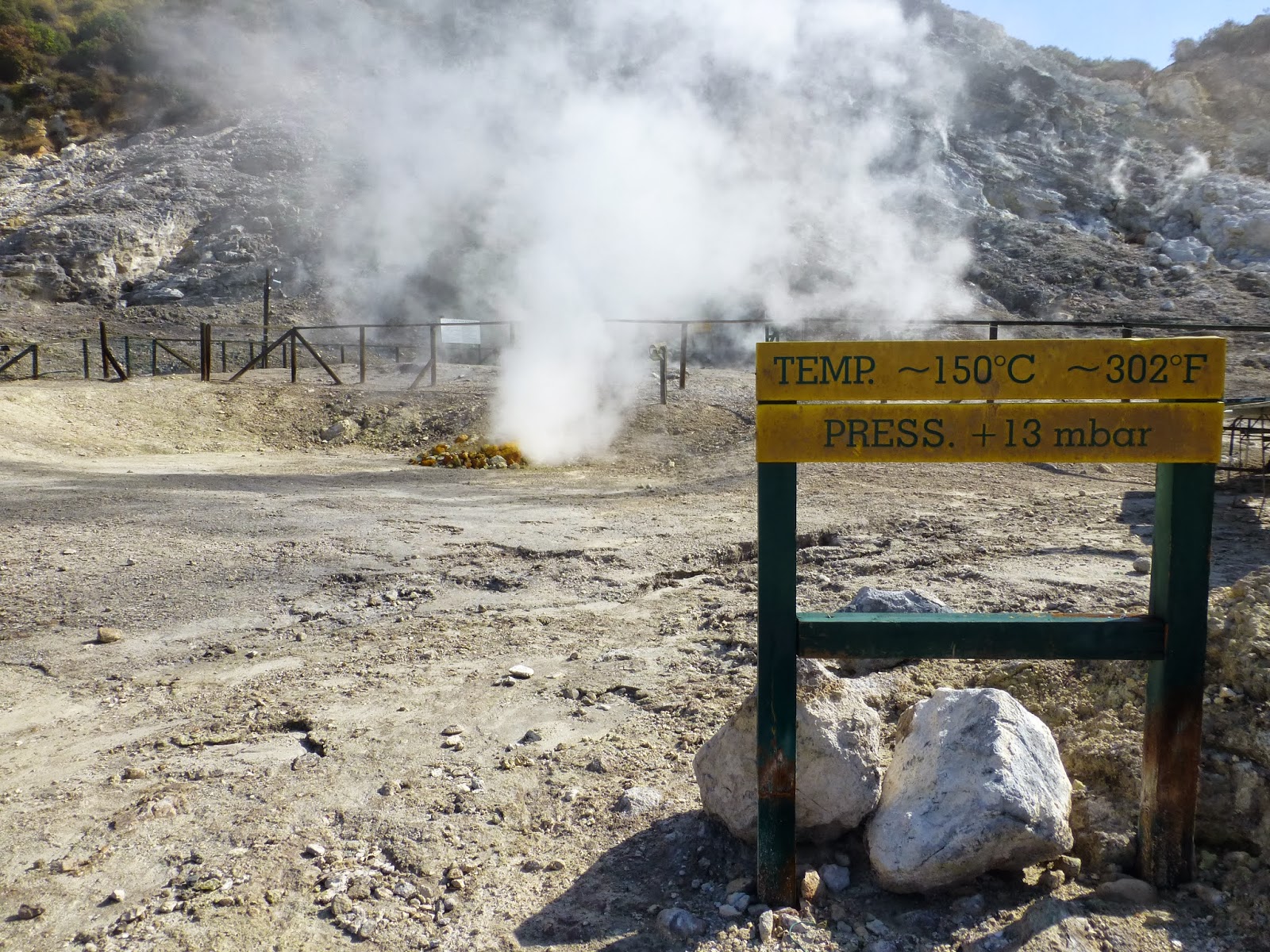Anyone traveling to Naples usually has Vesuvius and Pompeii on their list. But there’s a fascinating volcanic location that was long less well-known: the Solfatara di Pozzuoli, also called the ‘burning fields’. This remarkable location in the Campi Flegrei made such an impression on me during my 2013 visit that I’d love to share my experience – including the best alternatives now that the area is no longer accessible.
⚠️ Important Update: The Solfatara crater has been closed to the public since September 2017 following a tragic accident. You can still admire the volcano from outside, and there are several beautiful alternatives in the Campi Flegrei. In this article, I share my 2013 experience and the best alternatives for now.

From Strike to Unexpected Discovery
My original plan was to climb Vesuvius. But when I arrived at Agnano station, there was a strike going on. Typical Italy – the locals turned around en masse and walked back. I also decided to look for a plan B.
Tip for your trip to Naples: Expect strikes in public transport, especially during summer months. Always check the current situation in advance. Consider booking your tours here so you won’t have any surprises.

Back at my hotel near Agnano Station, they told me about an alternative: the Solfatara, an active volcanic area just half an hour away. I’d never heard of it, but I was happy to be surprised.
What Exactly is the Solfatara?
The Solfatara is part of the Campi Flegrei (Phlegraean Fields), a supervolcanic area west of Naples with about 24 craters and volcanoes. This special place was formed about 4000 years ago. The last eruption took place in 1198 – a so-called phreatic explosion, where groundwater comes into contact with hot lava.
Solfatara vs Vesuvius: What’s the Difference?
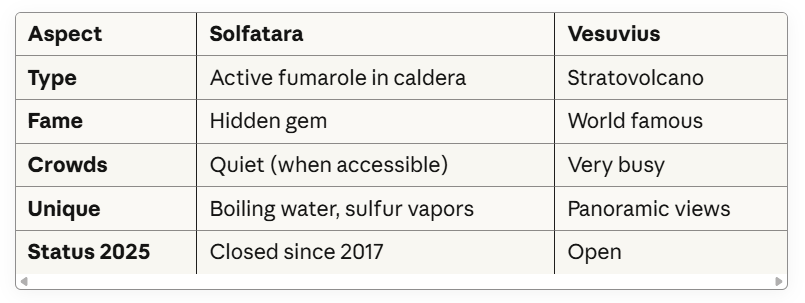
The Solfatara offered an intimate, almost science-fiction-like experience that was completely different from Vesuvius.
My Experience: Walking on the Burning Fields (2013)
Arrival and First Impressions
The hotel arranged a free taxi for me through a family member – true Italian hospitality! After half an hour’s drive, I was dropped off right at the entrance. Upon entry, I bought a ticket at a small office for €7. You received a map with the main attractions.

It was a beautiful day with a bright blue sky – perfect for this unique experience. In 2003, the area was officially declared a national park, although in my time it was still privately owned by a local family.

Belvedere Superiore and Inferiore: The Viewpoints
The path first led me to two viewpoints: Belvedere Superiore and Belvedere Inferiore. From here I had a spectacular view over the entire volcanic area, with the village of Pozzuoli in the background. The plumes of smoke rising from the crater were visible even from here, a surreal sight!
Photography tip: Take the best photos in the morning or late afternoon, when the light is softer and the contrasts more beautiful.

The Caldera: The Steam Kettle
Then I descended to the plain, the so-called Caldera (literally: steam kettle). This bowl-shaped crater was formed by the collapse of land after a volcanic eruption.

What immediately struck me:
- The lake in the middle: Due to the rain from the previous night, it was quite large. I saw bubbles rising, the water was partly boiling! Temperatures reached up to 150°C (302°F).
- The heat under your feet: It literally got warm under my shoes. In windless weather, you really feel the heat from the earth through your soles. An unreal sensation!
- The sulfur smell: That characteristic rotten-egg smell, you smell the active volcanic activity. It was intense, sometimes even a bit overwhelming.
I visited the Solfatara around 11:30 AM, the hottest time of the day. The combination of heat from above and below made it an intense experience.

Solfatara Naples – Phlegrean Fields

Historical Attractions on the Terrain
The Millstones Large round stones that were used to grind Bianchetto, a white powder extracted from volcanic rock. These stones had been lying there for centuries and gave you the feeling of walking through an open-air museum.

Pozzo dell’Acqua Minerale A historic water source that was known in the Middle Ages for its mineral-rich water. People believed the water had healing properties against stomach ulcers and infertility. Fascinating to see how people visited this place for health purposes for centuries.
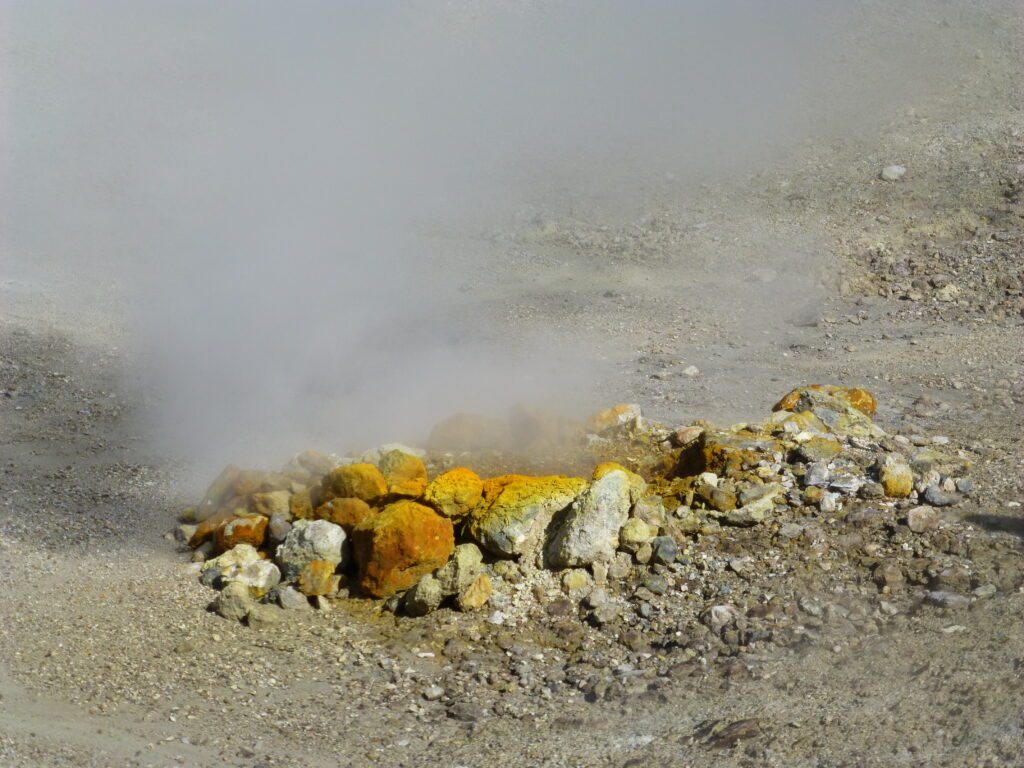
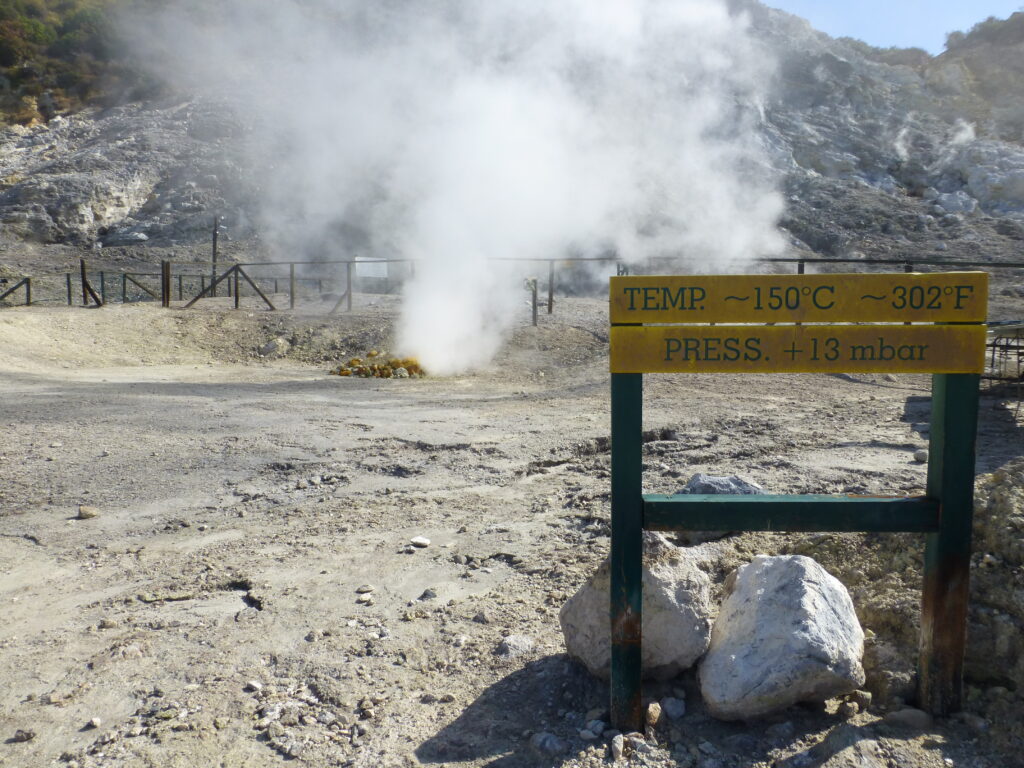
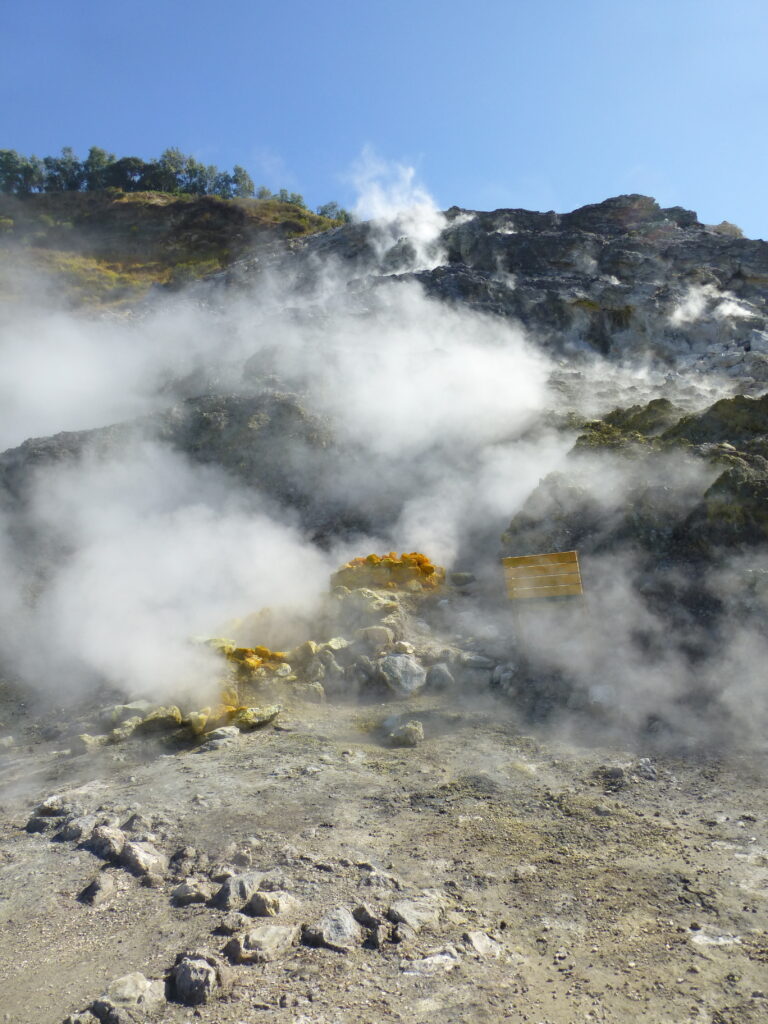

The Bocca Grande: The Big Mouth
The absolute highlight was the Bocca Grande, the largest fumarole (steam vent) in the area. Here, clouds of smoke permanently rose with temperatures up to 150°C. The sound of hissing steam, the heat, the smell, all your senses were stimulated. The name ‘burning fields’ was very appropriate here!
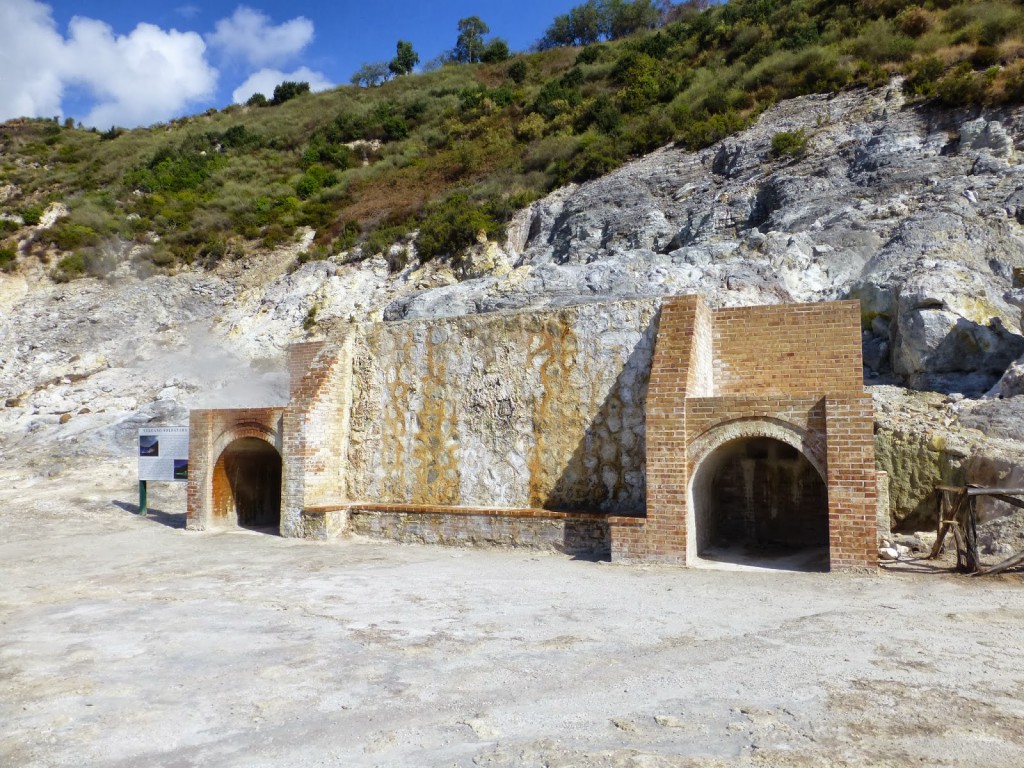
Stufe Antiche: The Other Hell
Near the Bocca Grande stood the Stufe Antiche, also called ‘The Other Hell’ – an old sauna-like structure. This was a kind of natural oven that was used as a therapeutic sauna in ancient times. People then thought that the sulfur-rich vapors were good for the respiratory system.
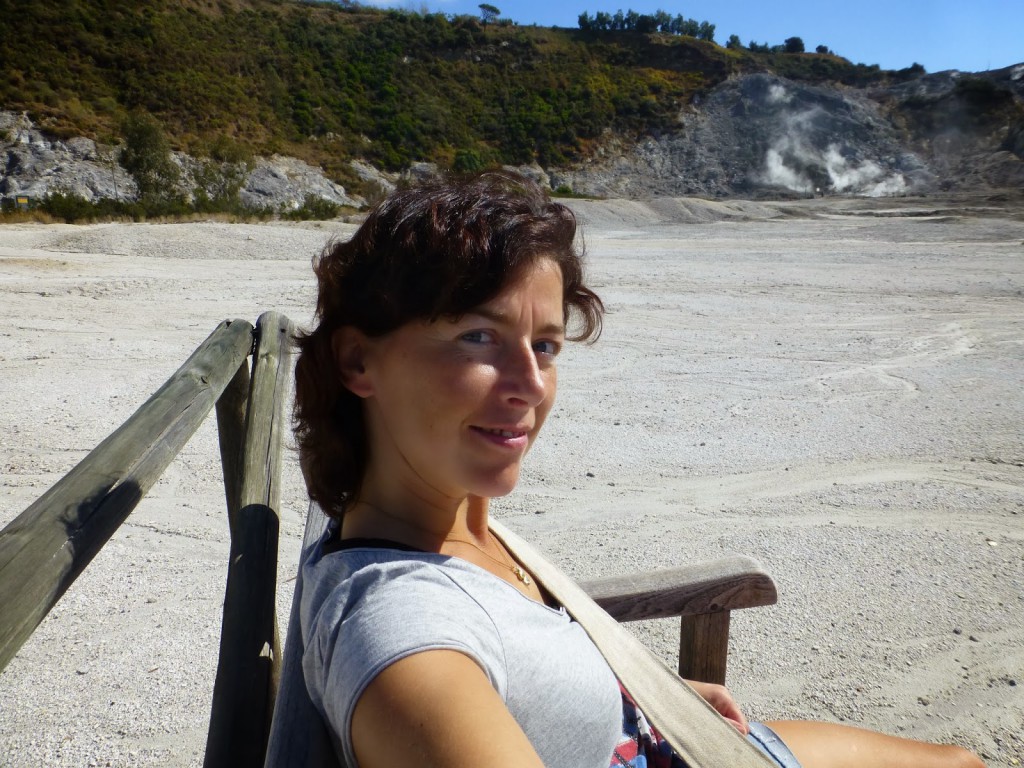
I sat down on a bench and enjoyed this strange, almost alien landscape. It was as if you had landed on another planet.
Why is the Solfatara Closed? (2017-2025)
On September 12, 2017, a tragic accident occurred in which three people, an 11-year-old boy and his parents, lost their lives. They fell through an unsafe spot in the crater floor. The younger brother, aged 7, was the only survivor. This dramatic incident led to immediate closure of the site. The safety measures were indeed minimal when I was there in 2013, I had noticed that myself. There were few fences or warning signs, despite the dangers of boiling water and unstable ground.
Current situation: The crater remains closed to the public. There are no known plans for reopening, given the safety risks and increasing volcanic activity in the Campi Flegrei.
The Best Alternatives to the Solfatara in 2025
Fortunately, there are fantastic alternatives to experience the volcanic power of the Campi Flegrei:
- View of the Solfatara from Outside
You can still admire the Solfatara from outside. From the surrounding roads and parking area, you see the steam clouds rising – still impressive! Book a tour through the Campi Flegrei here that stops at the best viewpoints. - Anfiteatro Flavio di Pozzuoli
This beautiful Roman amphitheater is the third largest in Italy. Here, Christians were fed to lions in ancient times. The underground tunnel system is fully accessible – fascinating! - Parco Archeologico delle Terme di Baia
The ruins of the luxurious Roman baths where emperors and nobility came to relax. Due to volcanic activity, parts of the old resort now stand underwater, you can even dive there! - Crater Lake Lago d’Averno
According to the Romans, this was the entrance to the underworld. A mystical crater lake where you can take beautiful walks. The atmosphere is magical, especially at sunset. - Monte Nuovo
The youngest volcano in the area (formed in 1538). You can walk to the top and look into the crater, an easy climb with beautiful views! - Rione Terra Pozzuoli
The underground Roman city beneath Pozzuoli, only fully reopened in 2023 after restoration. An underground world full of history!
Combine your visit: Book a complete Campi Flegrei day tour that combines multiple attractions including transport and guide.

Best Time to Visit
- Spring (April-May): Blooming nature, pleasant weather
- Autumn (September-October): Less crowded, beautiful light
- Avoid: Summer afternoon (too hot) and Monday (much closed)
Where to Stay near the Campi Flegrei?
- In Pozzuoli
Close to all attractions, authentic Italian town with good restaurants. View hotels in Pozzuoli. - In Naples Center
More choice, livelier, better nightlife. From here, the Campi Flegrei are easily accessible. Find your ideal hotel in Naples. - Near Agnano/Bagnoli
Quiet residential areas between Naples and the Campi Flegrei. Where I stayed at the time – good base! Hotels in this area.
Want to see more about Italy?
